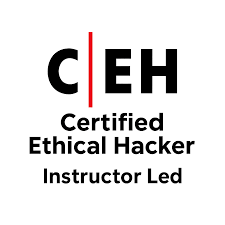Palo Alto Training – Learn Palo Alto Firewalls in 2025

In the ever-expanding world of cybersecurity, professionals have a wide array of certifications to choose from, each catering to specific skills and career paths. Two of the most respected and widely recognized certifications offered by the EC-Council are the Certified Ethical Hacker (CEH) and the Computer Hacking Forensic Investigator (CHFI). Both are designed for cybersecurity […]

In the ever-expanding world of cybersecurity, professionals have a wide array of certifications to choose from, each catering to specific skills and career paths. Two of the most respected and widely recognized certifications offered by the EC-Council are the Certified Ethical Hacker (CEH) and the Computer Hacking Forensic Investigator (CHFI). Both are designed for cybersecurity professionals, but they focus on different areas of expertise.
If you’re at a crossroads wondering which of these certifications is right for you, this article will guide you through a thorough comparison of CEH vs CHFI—including objectives, skill sets, job roles, salaries, and who each is best suited for.
The CEH certification trains individuals to think and act like a hacker—legally and ethically. CEH professionals use the same tools and techniques as malicious hackers to identify vulnerabilities in systems and networks. The goal is to expose weaknesses before cybercriminals can exploit them.
Key Focus Areas:
On the other hand, the CHFI certification focuses on post-attack investigation. It trains professionals in digital forensics—collecting, preserving, analyzing, and presenting digital evidence. The CHFI is essential for professionals involved in investigating data breaches, fraud, cybercrimes, or employee misconduct.
Key Focus Areas:
CHFI professionals work like digital detectives. After a breach or attack, they investigate what happened, how it happened, and who was behind it.
Learn more about CHFI:
https://securevalley-training.net/computer-hacking-forensic-investigator-chfi-fr/https://securevalley-training.net/computer-hacking-forensic-investigator-chfi-fr/
| Criteria | CEH | CHFI |
|---|---|---|
| Primary Focus | Offensive security / ethical hacking | Digital forensics and investigation |
| Certification Body | EC-Council | EC-Council |
| Typical Job Roles | Penetration Tester, Ethical Hacker, SOC Analyst | Digital Forensic Investigator, Incident Responder, Cybercrime Analyst |
| Exam Code | 312-50 | 312-49 |
| Exam Format | Multiple-choice (125 questions) + Optional CEH Practical | Multiple-choice (150 questions) |
| Duration | 4 hours | 4 hours |
| Prerequisites | Basic networking and security knowledge (recommended) | Experience in security or IT forensics (recommended) |
| Ideal For | Those who want to test and secure systems proactively | Those who want to investigate incidents and collect digital evidence |
Salaries for both CEH and CHFI certified professionals are competitive and continue to rise with experience and demand.
Keep in mind, salaries vary by location, industry, and experience.
Choosing between CEH and CHFI depends on your career interests, skills, and professional goals.
Absolutely! Many professionals start with CEH to understand how attacks happen and follow up with CHFI to learn how to investigate them. Holding both certifications can position you as a well-rounded cybersecurity expert capable of handling both offense and defense.
Your company suffers a ransomware attack. A CEH-certified professional would be involved in:
A CHFI-certified professional would:
In an ongoing fraud case, a forensic team needs to recover deleted emails from a suspect’s device and prove tampering. This task falls squarely into the CHFI domain. However, if the goal was to simulate how a breach could’ve happened—then CEH professionals would be called in.
Both offer self-paced, instructor-led, and online options through EC-Council and authorized partners.
In the debate of CEH vs CHFI, there’s no one-size-fits-all answer. Both certifications offer valuable, in-demand skills in the cybersecurity field—but serve very different purposes.
If you’re more of a problem-solver and proactive defender, go for CEH.
If you’re analytical, detail-oriented, and want to dig into digital evidence, CHFI is your path.
Or, become a double-threat and earn both to strengthen your skill set across the cybersecurity spectrum.
Explore further:
Get certified with industry-leading cybersecurity certifications from EC-Council, PECB, Palo Alto Networks, and more.

Learn from world-class instructors Collaborate with top professionals Advanced training...

The CEH is the world's leading cybersecurity certification, recognized by...

Onsite training course Led by an instructor Interactive sessions

Asynchronous, self-study environment Video-streaming format Flexible learning schedule
Adding {{itemName}} to cart
Added {{itemName}} to cart

